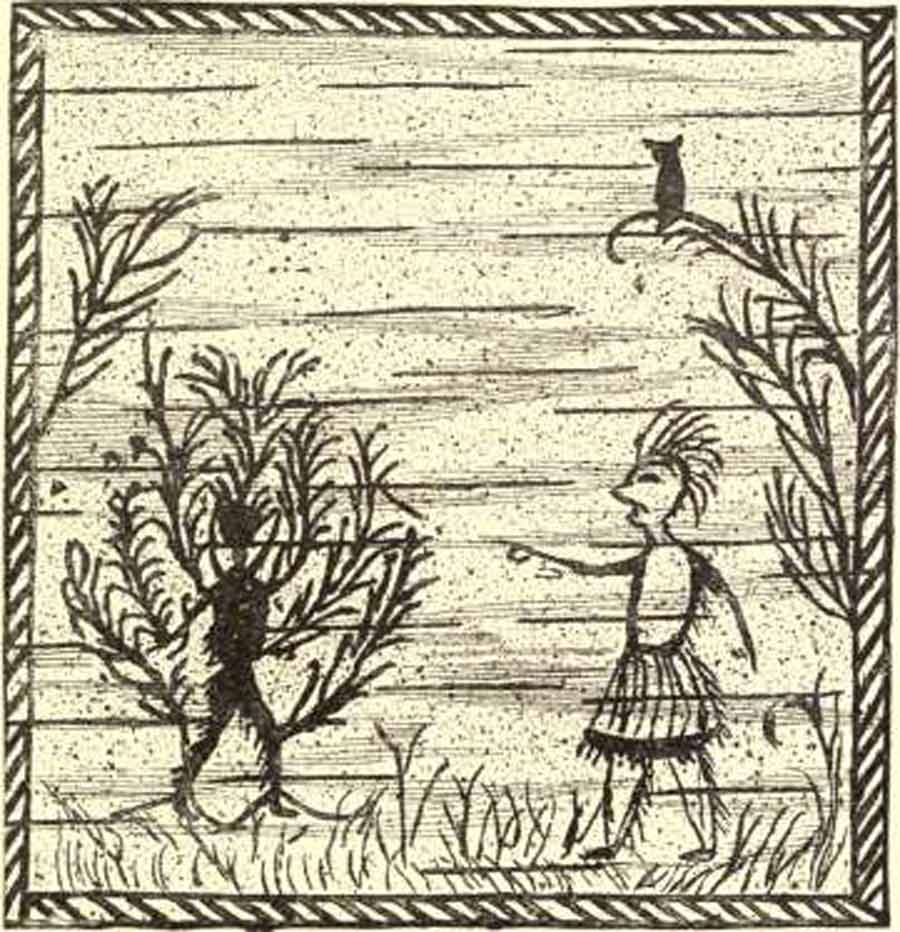The legend of Gluskap, the revered Holy Man of the Eastern Algonquian tribes, is a captivating tale that interweaves themes of creation, cultural identity, and moral instruction. This figure, often depicted as a demigod or a prophet, serves as an emblematic representation of the cultural narratives held by Indigenous peoples of North America. His stories impart essential teachings that resonate profoundly with Bahá’í principles, illustrating the interconnectedness of spiritual truths across diverse traditions. Within this exploration, we will delve into Gluskap’s significance, the core teachings attributed to him, and the spiritual lessons that can be gleaned from his legend.
Gluskap is often characterized as a benevolent creator figure, whose origins lie in the ethereal realms. According to oral traditions, he emerged from the vaporous depths of the universe to bring order to a chaotic world. This act of creation is emblematic of many faiths, as it signifies the emergence of life and the essential role of a guiding force. In Bahá’í belief, recognition of a Creator who actively paves the way for human advancement aligns harmoniously with the teachings of Gluskap, illustrating a universality of divine intention permeating all cultures.
The essence of Gluskap’s character is predominantly defined by his interactions with nature and humanity. He is often depicted as a protector of the natural world, nurturing the lands he traverses and imparting wisdom to the beings he encounters. This profound relationship with nature underscores a fundamental tenet of Bahá’í teachings: the reverence for the environment as a manifestation of God’s handiwork. The teachings of Gluskap advocate for stewardship and harmony with nature, mirroring Bahá’í perspectives on ecological responsibility and the intrinsic link between humanity and the natural world.
One of the most compelling aspects of Gluskap’s teachings lies in his engagement with morality and the ethical responsibilities of individuals towards both their communities and the greater universe. His stories frequently encompass lessons about honesty, integrity, and the importance of selflessness. For instance, Gluskap’s numerous encounters with those who embody greed or malice serve as cautionary tales, reminding individuals of the consequences of their actions. In this light, the fundamental Bahá’í ideals of justice and service to others reflect the moral fabric that Gluskap’s narratives promote.
Moreover, Gluskap embodies the ideal of unity among diverse peoples. Throughout legend, he is presented as a mediator, bridging the divides between factions and promoting alliances. This aspect of his character aligns closely with Bahá’í teachings of the oneness of humanity. It posits that discord is detrimental to societal progress, and the resolution of conflict through understanding and cooperation is paramount. The timeless stories of Gluskap serve as parables advocating for unity, stressing that collective harmony is essential for spiritual and societal evolution.
The narratives surrounding Gluskap further highlight the importance of knowledge and wisdom in enhancing human existence. Within the legends, he often bestows gifts of knowledge, teaching various tribes the secrets of survival, agriculture, and the mysteries of life. This dissemination of wisdom resonates with the Bahá’í emphasis on education as a powerful tool for personal and communal advancement. Without knowledge, humanity falters; with it, they flourish. Gluskap’s teachings serve as a reminder of the transformative power of education and its role in shaping virtuous individuals.
Delving deeper into Gluskap’s narratives unveils an underlying current of humility. Despite his formidable powers, he often emphasizes the importance of listening, learning, and engaging with the voices of the marginalized. This theme of humility echoes the Bahá’í teachings that endorse humility as a precursor to true wisdom. It is a call to abandon arrogance and seek understanding from others, recognizing that every individual possesses a fragment of truth. In the stories of Gluskap, there lies an implicit exhortation to cultivate open-mindedness and receptiveness in the pursuit of truth.
The allure of Gluskap’s legend lies not solely in its narrative structure but also in its multifaceted nature, which invites various interpretations and insights. His tales are a tapestry of cultural heritage, filled with vibrant imagery and poignant lessons that resonate through generations. This rich cultural narrative invites listeners and readers alike to explore their own spiritual journeys, as they connect the allegorical threads woven through Gluskap’s life with their personal experiences and beliefs.
In conclusion, the legends of Gluskap serve as a profound source of spiritual insight and cultural significance. They encapsulate essential teachings that celebrate creation, advocate for ethical conduct, and emphasize the importance of unity and knowledge. The resonance of Gluskap’s narratives with Bahá’í principles illustrates an inherent truth that transcends cultural boundaries: the journey towards spiritual understanding is an eternal quest, intimately tied to our relationships with one another and the natural world. Engaging with these stories invites a deeper contemplation of the moral and spiritual imperatives that beckon humanity toward a higher realization of collective existence.
